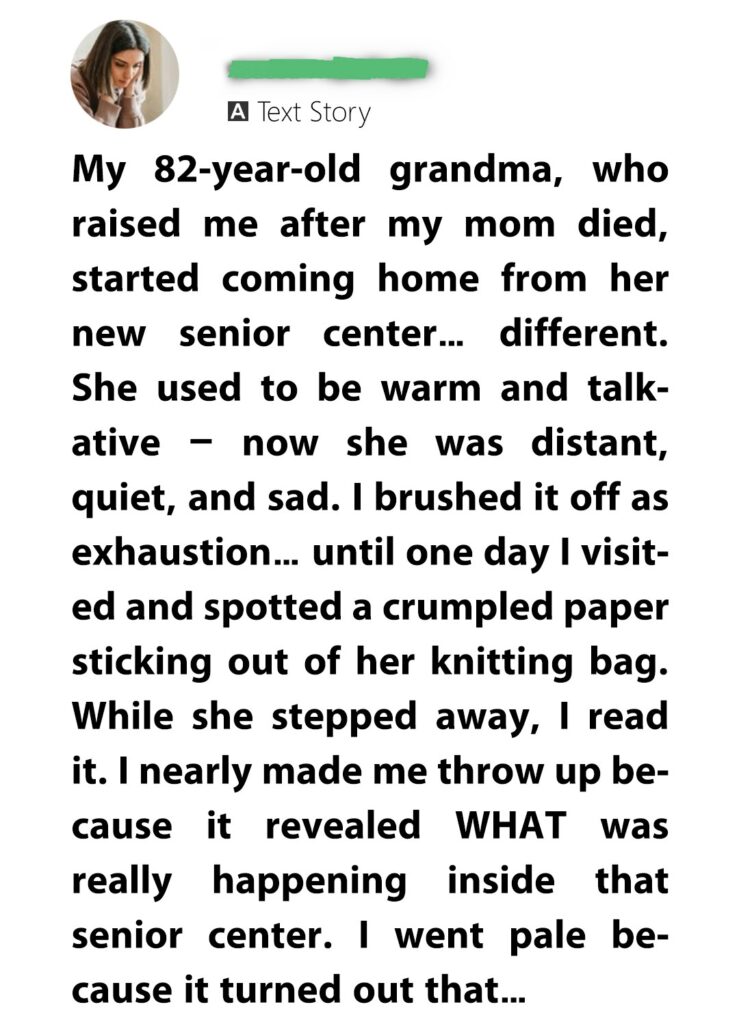I used to think my grandma’s fading smile was just part of growing old. Each visit, her laughter grew quieter, her stories shorter, her eyes dimmer. But something didn’t sit right. She had always been the light in every room—warm, witty, and full of life. Watching that light flicker felt like losing her in slow motion.
Then one afternoon, I arrived earlier than usual and caught a glimpse of her sitting alone in the corner of the senior center’s lounge. No one spoke to her. No one sat near her. The staff passed by without a glance. I realized then—this wasn’t aging. It was isolation.
I started digging. Quietly, I asked questions, observed interactions, and listened to whispers. What I found broke my heart. The center had become a place of routine neglect. Activities were canceled without notice. Meals were rushed. And worst of all, the emotional needs of the residents were ignored. Grandma, once a vibrant storyteller, had been reduced to silence in a place meant to care for her.
So I acted. I rallied family, spoke to administrators, and brought in volunteers. We organized storytelling circles, music afternoons, and memory-sharing sessions. Slowly, I saw her smile return—not just hers, but others too. Her stories came back, her laughter echoed again, and her eyes sparkled with mischief like they used to.

That experience taught me something profound: dignity doesn’t fade with age—it fades when we stop seeing people as whole. My grandma’s smile wasn’t lost to time. It was buried under neglect, waiting to be uncovered by love, attention, and action.
